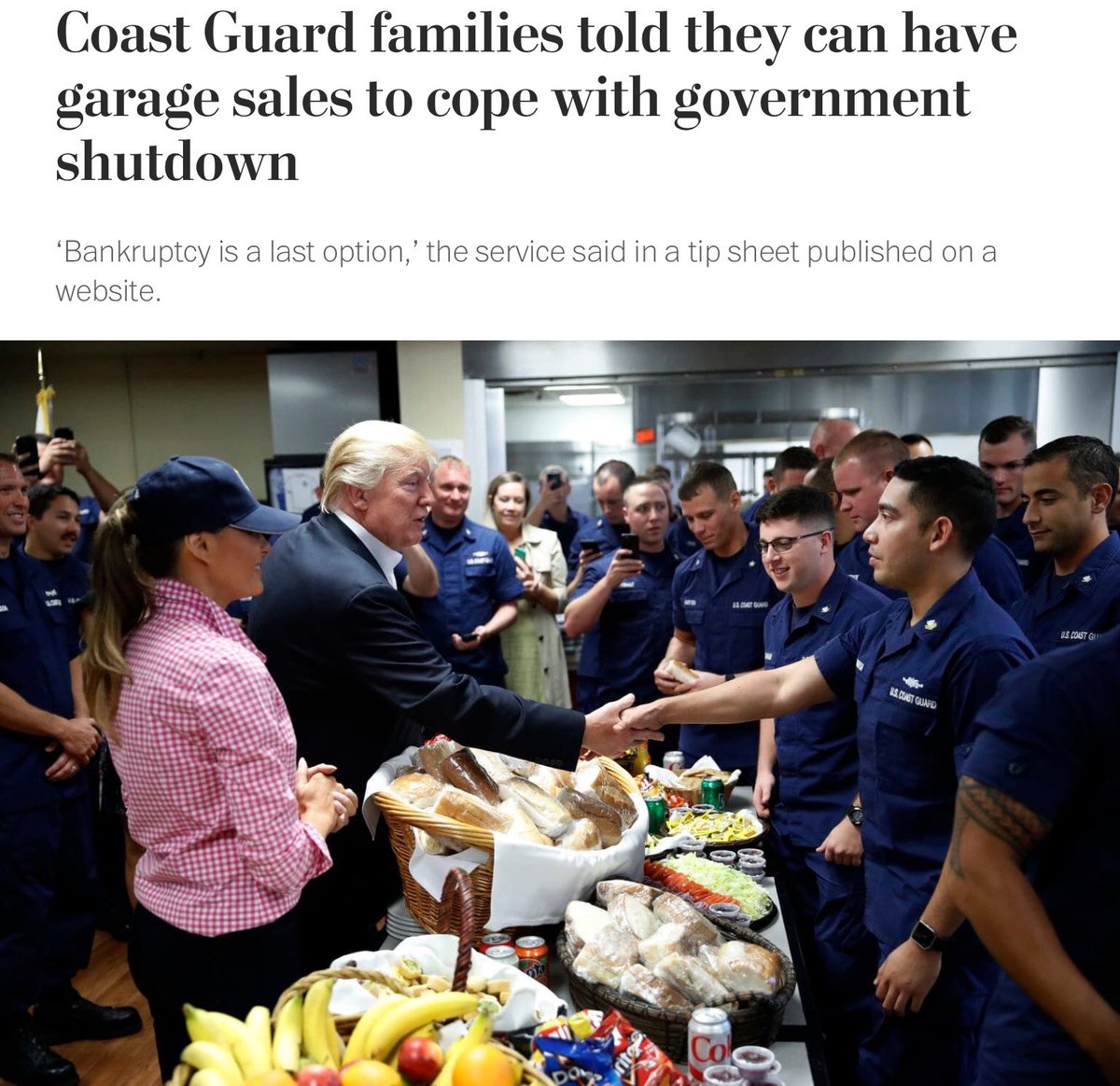"The American constitution does not contemplate such
presidential unilateralism."
 After President Donald Trump on Friday claimed he could declare a national
emergency in order to assert total control over the border and use existing
taxpayer money to build a wall he has repeatedly told the American public that
Mexico would pay for, legal experts are pointing out that Trump has no
authority under the Constitution to do any such thing.
After President Donald Trump on Friday claimed he could declare a national
emergency in order to assert total control over the border and use existing
taxpayer money to build a wall he has repeatedly told the American public that
Mexico would pay for, legal experts are pointing out that Trump has no
authority under the Constitution to do any such thing.
"I can do it if I want," Trump declared Friday.
"We can call a national emergency because of the security of our country.
We can do it. I haven't done it. I may do it."
Calling Trump's demand for the wall "constitutionally
illegitimate" in an op-ed for the Guardian in
the wake of the president's "bizarre" press conference outside the
White House, Harvard law professor Lawrence Lessig argued that no reading of
the nation's governing document "would ever uphold the view that a
president can stop the functioning of government, to insist upon a program
unsupported by the public or unrequired by the constitution."
Of all the constitutional norms that this president has upset,
this, ultimately, may be the most significant. And it is this innovation that
the Republicans especially should check.
For do they now concur in the precedent that a president has the
constitutional authority to insist upon whatever policy he likes, regardless of
its support in the public?
If a Democrat were elected on the promise to establish
single-payer healthcare, does she then have the moral authority to shut down
the government until Congress nationalizes the insurance industry? Or directly
regulates pharmaceuticals? If she were elected on the promise to address
climate change, can she stop the ordinary functioning of government until
Congress passes a carbon tax?
Of course not, Lessig concludes: "The American constitution
does not contemplate such presidential unilateralism."
If there was money that Trump could use to build a wall, many experts agree it will
likely come from undesignated Pentagon funds.
But speaking with NBC News,
Matt Dallek, professor at Washington University's Graduate School of Political
Management and an expert in presidential power, said that Trump can
"declare some kind of national emergency, but what it would allow him to
do legally is a totally different question."
As the Trump's intransigence continues—and after admitting
behind closed doors that he could not submit to the Democrat's demands because
it would make him "look foolish" if he did—NBC News reports on how the concrete impacts
are being increasingly felt by those federal workers locked out of working or
working without pay.
Discussing the issue on MSNBC on Saturday
afternoon, legal scholar and former congresswoman Elizabeth Holtzman said that
her reading of the relevant statute is that while Trump has some authority to
declare a national emergency, as Dallek noted, this doesn't qualify as one of
those times and that the president has no authority to re-direct money already
appropriated by Congress for other purposes towards his wall.
"This just another one of his hair-brained schemes,"
Holtzman said.
"And we know, time after time, his cruel, unnecessary,
horrifying policies on the border—whether its separation of children from their
parents or whether it's stopping people from coming in under the asylum laws or
whether it’s his original total ban on Muslim immigration—all of those were
shut down by the courts.
“So I think the reason he's doing this now, in this way, is he's
very worried about whether he has authority and he's trying to threaten
Congress. It's not going to work. The Democrats are not going to support a
wall."
As a result, Holtzmann said, it is the 800,000 federal workers
and their families who are being held hostage by Trump's cruelty.
"Are they going have enough money to put food on the table?
Is their house going to be taken away? Is their mortgage going to be forclosed
on? I mean, what is he doing to this country? For his image? That's an
outrage."
As Lessig argued in his op-ed, Trump "does not act for the
people. He does not act to defend the constitution. He acts to avoid, as he
acknowledged to Senator Chuck Schumer, 'seeming foolish.'"